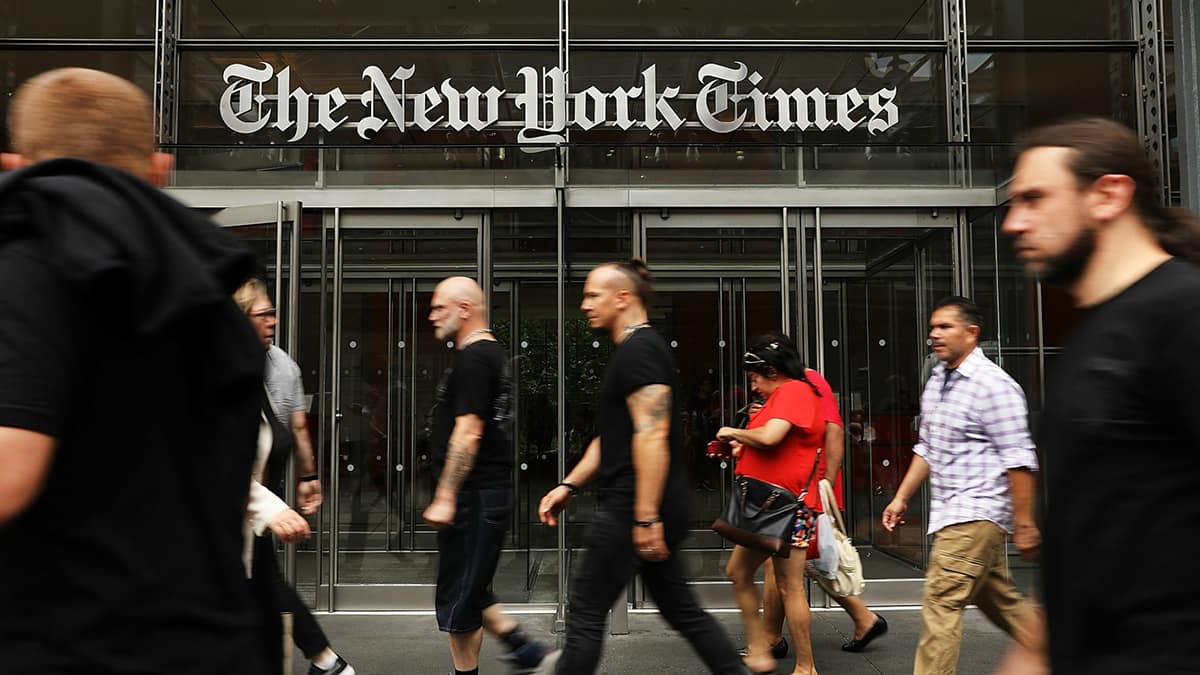In a legal move filed on Wednesday, The New York Times initiated a lawsuit against Microsoft and OpenAI, accusing them of copyright infringement and misusing the newspaper’s intellectual property for training large language models. The suit seeks accountability for “billions of dollars in statutory and actual damages” for what The Times claims is the “unlawful copying and use” of its valuable works.
Table of Contents
Accusations of Mass Copyright Infringement
The lawsuit contends that Microsoft and OpenAI have developed a business model built on “mass copyright infringement.” According to The Times, the artificial intelligence (AI) systems created by these companies exploit and, in many cases, retain substantial portions of the copyrightable expression contained in The Times’ works. The lawsuit highlights instances where GPT-4, OpenAI’s large language model, produced altered versions of material published by The New York Times, directly competing with its content.
Legal Action Details: Seeking Damages and Accountability
The legal action, filed in the U.S. District Court for the Southern District of New York, aims to hold Microsoft and OpenAI accountable for the damages incurred through the alleged misuse of The Times’ intellectual property. The newspaper is represented in the proceedings by Susman Godfrey, the litigation firm known for its involvement in high-profile cases, including Dominion Voting Systems’ defamation suit against Fox News.
Protecting Journalistic Material
The New York Times acknowledges the potential of AI for the public and journalism but emphasizes that journalistic material should not be used for commercial gain without permission from the original source. The publisher asserts that settled copyright law protects its journalism and content, emphasizing that if Microsoft and OpenAI wish to use their work for commercial purposes, obtaining permission is a legal requirement.
Defendants’ Response: Surprised and Disappointed
OpenAI expressed surprise and disappointment at the legal development, stating that ongoing conversations with The New York Times had been productive and constructive. The AI company is hopeful of finding a mutually beneficial way to work together. Microsoft, a key investor in OpenAI and its technology supplier, has not responded to requests for comment.
Industry Context: AI Models and Copyright Concerns
The lawsuit reflects a broader trend of media organizations seeking compensation for the alleged use of their content to train advanced AI models. OpenAI’s GPT models, including GPT-4, have come under scrutiny for their use of copyrighted materials without permission. Publishers are concerned that AI models competing with their content could impact traffic, revenues, and commercial opportunities.
Ongoing Copyright Debates in the AI Space
The legal action by The New York Times adds to the ongoing debates surrounding copyright infringement in the AI space. As AI technologies continue to evolve, the intersection of intellectual property rights and AI model training raises complex legal questions. The outcome of this lawsuit may have implications for the use of copyrighted materials in AI development.
Note: The defendants, Microsoft and OpenAI, have not yet responded to the specific allegations in the lawsuit.
For more information, read the full lawsuit filing at the U.S. District Court for the Southern District of New York.
